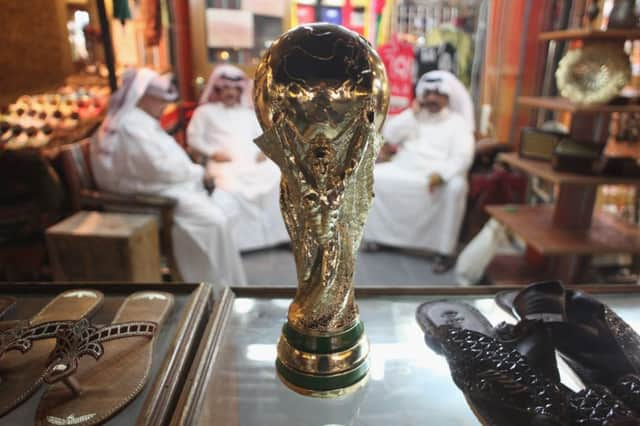Leaders: Qatar 2022 corruption exposes rot at Fifa


But it is also very rich. And now there is a Hampden-sized pile of e-mails which strongly suggest that money was talking a lot louder than the needs of the game and the competition in the minds of some of those who were voting on where the 2022 competition should be staged.
The allegations are vehemently denied by the Qatari authorities. In which case, there must be an innocent explanation for the apparent handing out of about $3 million (£1.8m) to numerous football officials in mostly poor countries, and Qatar should have no problem in opening up all the relevant paperwork to outside scrutiny. Convincing the rest of the world that that is the case, however, will be a hard task. The man through whom the money seems to have been channelled, Mohamed bin Hammam, had already acquired a dubious reputation for financial finagling in sporting matters. The e-mails are so detailed, and, in some cases, so obviously outlining none-too-thinly disguised payments that, if genuine, only one conclusion seems reasonable.
Advertisement
Hide AdAdvertisement
Hide AdIndeed, football’s world ruling body, Fifa, was already investigating complaints and allegations of bribery. Its investigator, New York lawyer Mark Garcia says he should be able to complete it and present his initial findings within a week.
That is excellent news, for now that what he is probing is out in the open, there can be no possibility of a cover-up. And if the allegations that Qatar obtained the competition by bribery are made to stand up, then Fifa should move swiftly by cancelling the award and re-opening the competition to South Korea, Australia, Japan, and the United States, the other original contenders.
But the action should not stop there. This is, after all, the eve of the 2014 World Cup in Brazil. There will be the usual strictures and demands for fair play and sporting competition. If they are to mean anything at all, then Fifa’s off-field activities must also be seen to be fair and clean.
Sepp Blatter, the veteran Fifa president, must be prepared to step aside. There have been just too many of these unsavoury episodes on his watch – and too much foul behaviour has been brushed under the carpet. New people equipped with rather a lot of new brooms look to be needed at the top.
Without such change, Fifa risks undermining the whole sport. Freak results do happen in football but if this affair does not result in a decisive clean-up, the danger is that people will lose all faith in the credibility and integrity of Fifa and so lose faith in the integrity of the game itself.
Posthumous awards fully merited
Getting shot while attempting to arrest a murderer ought to merit a bravery award. But that was not the case for police constable Geordie Greig and farmer John Grant, seriously wounded by Percy Toplis, a serial army deserter and killer of a taxi driver, when they confronted him in a remote bothy near Tomintoul in June 1920.
These attempted murders, particularly when it became known that Toplis had sung a cheery song while fleeing the scene, caused such a storm that newspapers of the day called it the “Tomintoul Outrage”. So why no awards to the two men who had risked their lives and thankfully survived?
Perhaps it was because Toplis had become a serious embarrassment to the army and the establishment. Whether or not he was involved in a First World War mutiny is still unclear, but whatever the truth, it was an episode the military wanted to be forgotten. And Toplis’ success in posing as an officer (he was a corporal) with his trademark monocle to con his way around high society was a further source of shame.
Advertisement
Hide AdAdvertisement
Hide AdSo when he was finally cornered by police in Cumbria, shot and buried in an unmarked grave, it may be that the powers of the day decided that the fewer reminders there were of an undoubted villain, the better.
If so, it was a shoddy decision. PC Greig and Mr Grant deserved better. Now they have some posthumous recognition thanks to the decision of chief superintendent Mark McLaren, the Aberdeen and Moray divisional commander, to award the men a special commendation, handed over to their descendants. A bit late perhaps, but it is never too late to do the right thing.